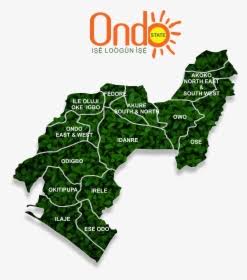The Socio-Economic Rights and Accountability Project, SERAP, has filed a lawsuit against President Bola Tinubu’s administration and Nigeria’s 36 state governors at the ECOWAS Community Court of Justice in Abuja.
The suit challenges the alleged misuse of the Cybercrimes (Amendment) Act 2024 to suppress freedom of expression and violate human rights, particularly those of activists, journalists, bloggers, and social media users.
According to the statement issued on 12 January 2025, SERAP’s Deputy Director, Kolawole Oluwadare, disclosed that the provisions of the amended Act remain vague, arbitrary, and repressive, enabling authorities to criminalise legitimate expression and restrict media freedom.
“The provisions of the Cybercrimes (Amendment) Act 2024 have opened the door to criminalising legitimate expression and punishing activists, journalists, bloggers, and social media users.
“This is a harshly punitive approach that fails to provide safeguards against misuse, particularly for the peaceful and legitimate exercise of human rights,” the SERAP statement read.
Background and Legal Context
The ECOWAS Court ruled on March 25, 2022, that Section 24 of the original Cybercrimes Act 2015 was “arbitrary, vague, and repressive.”
The Court ordered Nigeria to repeal the provision to comply with its human rights obligations under the African Charter on Human and Peoples’ Rights and the International Covenant on Civil and Political Rights.
Although the Cybercrimes (Amendment) Act 2024 repealed Section 24, SERAP argues that the reworded provisions still violate the rights to freedom of expression and information.
“What constitutes ‘causing a breakdown of law and order’ in Section 24(1)(b) of the amended legislation is unclear and undefined,” SERAP stated in its court filing.
“This ambiguity threatens to punish peaceful and legitimate expression and opens the provisions to abuse.”
Allegations of Misuse
SERAP’s statement highlighted numerous instances of alleged misuse of the law to target individuals critical of the government.
Activist Dele Farotimi faced cybercrime charges under the amended Act.
Journalist Agba Jalingo was charged with cyberstalking after reporting that a relative of a former Cross River governor engaged someone to sit for her law exams.
Social media user Chioma Okoli was arrested for commenting on the sugar content of a tomato mix brand.
The police reportedly re-arraigned four bloggers and arrested a popular singer for allegedly harassing the Benin Crown Prince.
“The amended legislation is routinely abused to stifle factual reports by activists, journalists, bloggers, and social media users, leaving a chilling effect on human rights and media freedom,” Oluwadare added.
International Human Rights Standards
SERAP stressed that the amended Act is inconsistent with international human rights law, which requires restrictions on freedom of expression to serve a legitimate purpose and be strictly proportionate.
“Freedom of expression is the cornerstone of democracy and indispensable to a thriving civil society. Nigerian authorities must not only refrain from unduly interfering with human rights but also actively facilitate and protect these rights,” the statement read.
SERAP’s Demands
In the suit, filed by SERAP’s legal team of Kolawole Oluwadare, Mrs Adelanke Aremo, and Andrew Nwankwo, the organisation seeks several reliefs, including: a declaration that Section 24 of the Cybercrimes (Amendment) Act 2024 is unlawful and inconsistent with Nigeria’s human rights obligations; and an order directing the government to repeal or amend the legislation in compliance with international standards.
“No date has been fixed for the hearing of the suit,” the statement stated.









